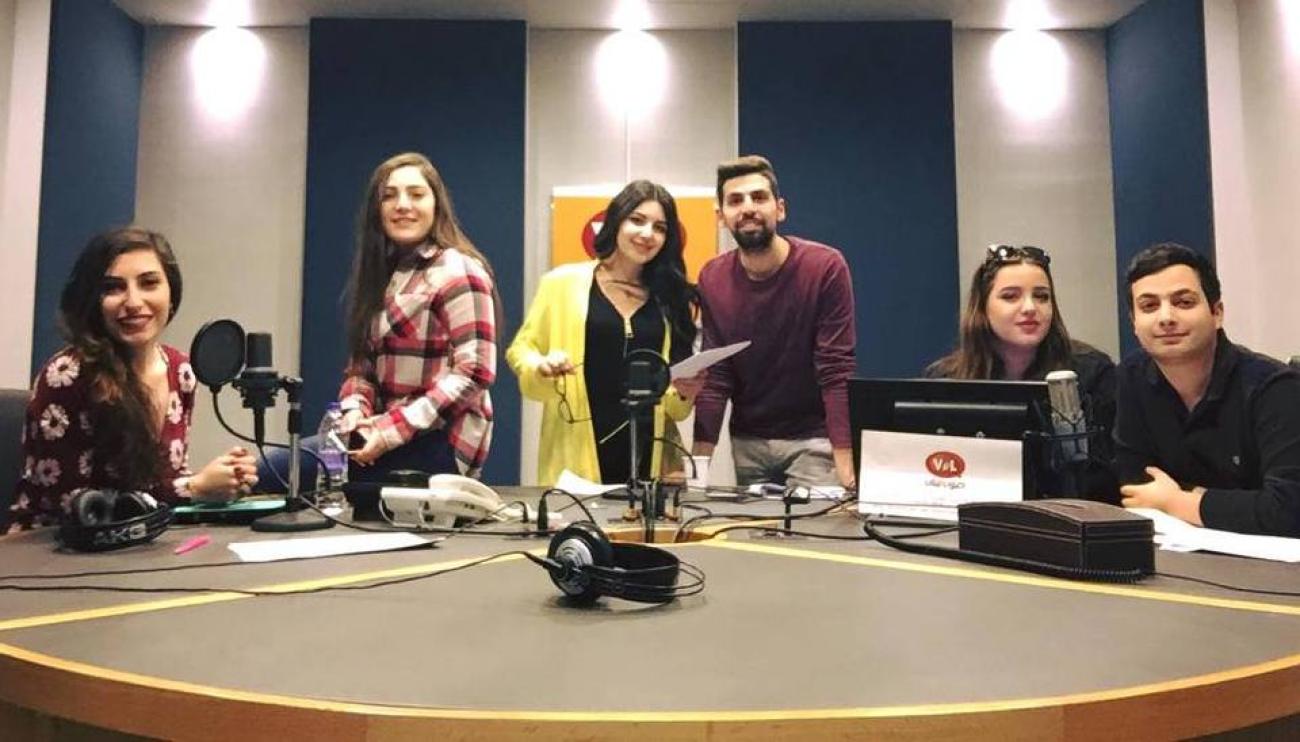From radio to theatre, bringing the voices of youth to centre stage in Lebanon

When we last blogged in this space in May 2016, we wrote about our plans to support the roll out of the 2030 Agenda in Lebanon. We knew that engaging the public – especially youth – would be critical. As part of our approach, we didn’t want to come in with any pre-developed solutions, but rather let young people provide the answers, even pose the questions. We wanted to enable youth-generated evidence that could be shared with policy makers and linked to national efforts to implement the 2030 Agenda.
In 2016, the government wasn’t ready yet to engage on the Sustainable Development Goals (SDGs). Supporting a conversation with the public was our best and, at the time, the only option. It held the promise of generating better and less-filtered information, and creating new public spaces for citizen-to-citizen interaction to achieve the SDGs.
Radio and theatre as a way to learn from young people in Lebanon
Together with UNESCO and the radio station, Voix du Liban, we launched “Chabab Wa Tanmia,” a radio show produced and hosted by six young journalists that focused on bringing a youth focus to bear on the SDGs. Each week the show would cover a different SDG-related area . Young people called in from across the country to share their priorities and concerns. Subjects ranged from how to address smoking among youth (a widespread issue in Lebanon), to how to strengthen community services and support mechanisms for the elderly, and how everyday actions can help protect children’s rights.
On top of the radio show, to better understand the development perspectives of those furthest behind – such as unemployed youth or women-headed households – we collaborated with the American University in Beirut (AUB) to produce two case studies reflecting a broad set of consultations with Lebanese and Syrian refugees and other vulnerable groups.
Employing playback theater – a type of improvisational and interactive theater in which people tell stories about their lives and watch them being enacted on the spot – helped people narrate the issues, such as corruption in hiring, and gender discrimination in all aspects of daily life.
Theatre methods created an opportunity for youth to share their experiences and find common ground. It also meant that we, as the UN and partners, could learn from young people. One major takeaway for the theater programming centred on the need to focus on lifelong learning opportunities for families to support the development of youth.
And now… a platform for government engagement
These initiatives have been important for enhancing citizen-to-citizen interaction, and providing public spaces for people to express themselves. They have also been key to understanding some of the issues we should focus in the future.
Having listened to more than 500 people in our engagement efforts, which includes those who participated in the radio shows, on social media, and via the national consultations spearheaded by AUB, we will be putting an increased focus on corruption, gender discrimination and child rights.
Nonetheless, without government leadership we won’t have a platform to amplify what we have been hearing. Recently, the Government committed itself to working on the SDGs by establishing an inter-ministerial committee, which will be a key entry point for UN engagement in supporting the roll-out of the SDG agenda.
The committee provides a forum to bring all ongoing SDG initiatives under one umbrella, which is a real opportunity to connect what we heard from people to political decision-makers. Together with the government, civil society and the private sector, we aim for our work to feed into a national multi-stakeholder consultation process that reflects the priorities and perspectives of those left farthest behind.
People informing priorities
As a result of our consultation process with youth, corruption, gender discrimination and child rights will be highlighted in our deliberations with the government and will inform our work planning for 2018.
Things may shift in Lebanon’s current political environment. But the country has weathered many political storms – and it is not easily shipwrecked. We are hopeful that the work that has been done will lead to tangible results for the people of the country, and leave no one behind.
Do you have experience utilizing key findings from youth engagement activities and elevating them to the national level? What have you learned?













